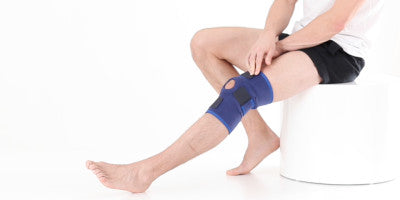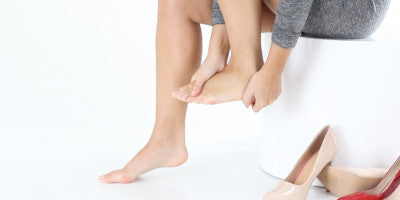Don’t Be A Quitter: How to power through Quitter’s Day

Quitter’s Day falls on the second Friday of January. It is on this day that most people give up on their new year’s resolutions. Buck the trend and to stick to your New Year’s resolution with these tips.
Be Specific and Realistic
When it comes to deciding on a New Year’s resolution, the temptation to declare one that is ambitious, broad and ultimately vague can be strong. There’s nothing wrong with saying you want to “lose weight” or “be fitter” but without a specific goal, it can be hard to stay on track. Instead of having a goal to lose weight, have your goal be to lose 10 pounds. It is key for your specific goal to be achievable. Once achieved, you can set it again: lose another 10 pounds! You’ll find it much easier to complete bite sized objectives.

Don’t Overextend Yourself
Like the temptation to choose broad and vague resolutions, you may also feel compelled to set yourself several. Even by setting specific achievable goals, spreading yourself too thinly over many resolutions will only do more harm than good as you struggle to maintain them all at once.
As a lot of resolutions centre around increasing physical activity, not overextending yourself can have literal connotations. Whether your resolution is to return to activity or to start from scratch, your body, following a period of inactivity, is a novice. Doing too much too soon can risk an injury which could put you off schedule. Monitoring your progress can really help you understand what activity level you’re ready for. Whether it’s the amount of weight you’re lifting or distance you’re running, don’t try and skip a natural progression point.

Make Your Goals Measurable
With your specific and achievable goals set, it’s important to be able to quantify them. With weight loss it is quite straight forward to make your goal measurable. However, with something like “being fitter, you could quantify your goal in different ways. For example, you could measure your goal progression in days, such as how many days in a week you’ve gone for a run of a similar distance. Alternatively, you could measure your goal progression in cumulative distance. As long as you have a way to track your progression, you’ll find your resolutions more manageable.

Don’t Be Too Hard On Yourself
The occasional slip isn’t going to ruin your resolution. What’s important is how you react to them. Should you skip a run one day, the key is to not let it turn into three or four days. Accepting a blip and consigning to not doing it again is a healthy way to manage your own expectations.
Set Time Scales
Having a specific, realistic and achievable goal is half the equation. Setting a time scale to achieve it in is the other half. In fact, when setting your time scale, you may find you’ve bitten off more than you can chew and this can help you scale your goals more towards achievability.
Patience is a virtue
When you’re setting your time scales it is important to remember to be patient with yourself. Learning a new behaviour takes time and then there’s time again for that behaviour to yield the desired benefits. Research suggests it can take as little as 18 days to form a new habit, but the average can be as high as 66 days. Once your habit is formed, naturally, it is easier to keep up with positive behaviours such as being active. If you slip up once or twice during your habit-forming stage, it won’t negatively impact your time to form. So do be patient with yourself and with the process!

Take Time To Warm Up
Extend that newfound patience to warming up. No matter how experienced you are at physical activity, you should always take the time to properly warm up and cool down. A good warm up primes the body for the activity ahead while a cool down will help prepare the body for future events. A warm up should be a light activity that brings your body temperature up and gets your blood circulating to your muscles. Follow this up with some dynamic stretches where you are stretching through movements that you will be doing in your exercise.
After your activity, it ‘s time to cool down. The idea is to return the heart rate to around your resting rate. If your activity was particularly intense, it is advised that you bring your heart rate down slowly perhaps by progressing down from a run to light jog to walk. Once your heart rate is under control, undertake a series of static stretches for the muscles that you have worked holding each for around 30 seconds.

Be Supported
Having a strong support network during your resolutions can be the boost you need to get you over the hill. Friends or family that can offer an encouraging word can be so valuable but equally, if you’re undertaking more physical activity as part of your resolution, supporting any weak joints will be important to keep you going.
Injuries are the biggest thing that can knock your confidence and set you out of step with any rhythm you may have built on your resolution journey. Wearing a Neo G Medical Grade support can help protect joints either during the rehabilitation process following injury or proactively before injury on weak joints.
Going from little movement to regular activity can be a shock to the body, so don’t let niggles stop your momentum and manage pain with Active supports from Neo G.
To learn more about Active supports click here.
Remember, don’t be a quitter, be active in 2023.
Our Active range of knitted supports provide a snug, yet flexible fit during sporting and occupational activities. Multi Zone Compression surrounds muscles and joints for targeted support and the multi-way stretch allows flexible and safe movement, providing comfortable support and reducing the likelihood of injury. The specialist breathable fabric helps control moisture during intense activities, whilst the slimline, lightweight design means it can easily be worn under clothes for everyday wear.











